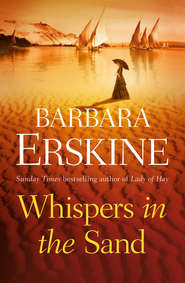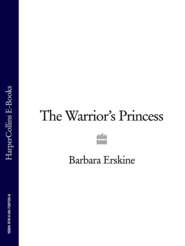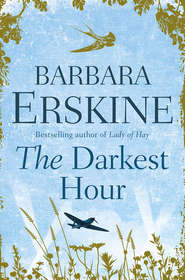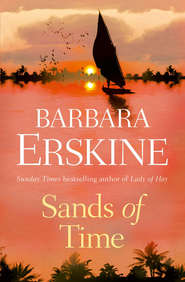По всем вопросам обращайтесь на: info@litportal.ru
(©) 2003-2024.
✖
The Ghost Tree: Gripping historical fiction from the Sunday Times Bestseller
Автор
Год написания книги
2019
Настройки чтения
Размер шрифта
Высота строк
Поля
‘And what do you know of the proper sea, Tom?’ His father was exasperated.
‘I know it can kill you, Papa,’ the boy replied softly. ‘I watched it from the castle walls at St Andrews. A friend of mine was drowned!’ His words died away. His father knew nothing of the ghost boy with whom Tom had explored the ruins.
‘I could be a soldier!’ Tom said suddenly, brightening at the thought. ‘Now David has resigned his commission, I could have it instead.’ Anything was better than the navy and he had been covertly watching the dashing young men in scarlet uniforms escorting ladies to the Assembly Rooms, riding up and down the streets, driving their curricles too fast, laughing and shouting with their friends. The idea of joining them one day was rather appealing.
Lord Buchan turned away from him and sat down abruptly. His face was grey and Tom realised that his father looked ill and tired. ‘Please, Papa,’ he repeated. ‘I think I would like the army.’
‘The army costs money too, Tom.’ Lord Buchan frowned as he looked at his thirteen-year-old son. David, newly promoted to lieutenant, had thrown his chance away, announcing the life was not for him. ‘I am sorry. I can’t afford to buy you a commission, not even as an ensign.’
‘Anne could help,’ Tom pleaded. ‘She could ask some of her rich friends.’
‘No.’
‘We could ask them to pray for the money?’ In a household fixated on prayer it was a natural thing to suggest, but to his increasing despair he saw his father’s anger beginning to surface.
‘God expects us to help ourselves, Tom. You can pray to be a good officer in the navy. You will be paid. I am told the starting wage is one pound ten shillings a month and even as a midshipman you will be entitled to a share of any prize money your ship earns from capturing privateers. After a few years you will be richer by far than your father with the miserable allowance he is granted by his miserly trustees!’ He forced himself to smile.
Tom couldn’t trust himself to speak. He could feel shameful tears clogging his throat. He swallowed hard. He had seen ships of the navy at anchor off Leith; he had seen them off Bristol, the great sails set, heeling slightly before the wind, when his mama had taken him with her to stay with some of her church friends. He had seen the seamen and the swaggering officers and the huge bundles of supplies being lowered into small boats to row out to the great ships at anchor in the fairway. He did not like the idea at all.
His father sighed. ‘Tom, we are no longer at war; please God, there is no danger. And Sir John Lindsay is a well-respected captain. He has agreed to take you aboard and train you as one of his young gentlemen; his ship is a frigate, bound for the Caribbean. Your mother agrees with me in all this. You will experience wonderful things, Tom. It will be an adventure, you’ll see.’
There was to be no argument.
12 (#ulink_ba176e24-7837-500e-b687-bbba2a933e6c)
Finlay’s idea of a quick breakfast was formidable. Porridge, scrambled egg with smoked salmon, toast and coffee. As they sat over their final cups of coffee he put forward his proposal: ‘I think you should stay here with me. I’ve been thinking about this. That house of yours – and it is yours, or it will be, have no fear – is a gloomy place, an outrage to good taste, and you don’t feel safe there. Am I right?’
Ruth nodded.
‘And, I’m here, all alone, in a relatively large house which is beautiful, warm, safe and furnished in impeccable style.’ He gave a hollow laugh as the sound of a plane flying low overhead rattled the windows. ‘God bless Edinburgh airport for its convenience, but the noise I could do without. Don’t worry. The wind will change! Now, we can keep a close eye on your place, and ask your friend next door to do the same in case the fearsome Timothy decides to launch a raid, but my guess is he won’t. There’s too much at stake for him. If he’s playing a much larger game, which he seems to be, he is not going to endanger it for the sake of another look round inside Number 26.’ He reached for the coffee pot. ‘No strings attached. You would actually be doing me a favour being here. It would be lovely to have your company, naturally, but I go away quite a lot and it would save me finding a house sitter. And perhaps I can help with your family research. I propose that you use the dining room as your base. You can spread out your books and papers on the table there, and you can send me off to raid whatever libraries you need. I belong to them all.’
‘Finlay!’ Ruth looked at him fondly. ‘How can I refuse?’
‘OK. Soon as you can, ring your solicitor chappy and tell him where you will be and tell him to do whatever he has to do to set the wheels in motion for nailing Timothy, then we can go back to the house and collect those books you mentioned and anything else you might need.’
‘It was that simple,’ Ruth said later when she rang Harriet back the following day. ‘We collected all my stuff and the rest of the books and all the boxes, turned off the gas and electricity, called on Sally Laidlaw, collected Mummy’s books from her, asked her to ring me if she sees Timothy poking around, and that was it.’
‘And where is Finlay now?’ Harriet asked.
‘He’s gone into town to see someone about his next project.’
There was a thoughtful pause from Harriet. ‘I take it he isn’t married? You haven’t mentioned anyone else being there?’ she said.
Ruth smiled. ‘No. No wife; no husband; no partner. Rick and I used to wonder about that. I think we assumed Finlay was gay, but he doesn’t seem to need anyone; he’s just a lovely cuddly person, complete in himself.’ She smiled fondly.
‘My goodness, Ruth. You have fallen on your feet!’ Ruth could hear the amusement in Harriet’s voice. ‘The only trouble with this paradisiacal set up is that the ghost you need to interview is back at Number 26.’
Ruth laughed uneasily. ‘Forget that! I found some letters in the cupboard which are copies of letters Thomas had sent to his daughter. He seems to be telling her the story of his life. I looked at one or two last night and found myself reading about his first days in the navy. Poor kid, he was only just fourteen when they sent him away.’ She had looked up the dates. ‘It would have been hard not to resent his two brothers for using up their father’s money; they were allowed to go to university, which seems to have been his dream, and he was packed off to God knows where with no prospect of coming back any time soon.’ And she had dreamt about it, she remembered with a jolt. She had dreamt about it vividly and in detail.
‘Any further mention of his being a spirit guide?’ Harriet was not to be diverted.
‘No. Nothing.’
After the call was ended, Ruth let herself out into the garden and walked down the lawn. Finlay’s house had been one of the several water mills along the River Almond, the same River Almond that Thomas had mentioned in his letter. She had mentioned it to Finlay. Apparently Broxburn was less than twenty minutes’ drive away and there, somewhere, was Kirkhill, the house where Thomas had studied before leaving with his family for St Andrews. Then the area had been quiet countryside and rural villages. It was in the nineteenth century that industry had come to Strathbrock in the form of shale and coal mining, and to the River Almond.
There was little left here now of the Almond’s nineteenth-century past beyond the stone-built miller’s house and some old pilings. The garden was separated from the public footpath along the riverside by iron railings and a steep drop, thick with undergrowth. Fin had created a sort of belvedere there and she stood, looking over the railings towards the water far beneath. Behind her the wind was dancing across the flowerbeds and a shower of autumn leaves scattered round her on the grass. She was thinking again about Tom and the fact that she had dreamed about him in such detail and suddenly she shivered. It was as though he was looking over her shoulder.
Easing himself into his car, Finlay sat for a moment staring ahead through the windscreen, deep in thought. The meeting with his agent had gone well. He was planning a new TV series and full of excited enthusiasm for the project. It meant he would be away filming sooner than he had expected but Ruth did not seem worried about being in the house on her own and having her live there would be a relief. He would help her sort out her problems with this wretched man before he left, and when she had custody of her inheritance. The Old Mill House would give her somewhere as an alternative base while she decided what to do with it.
He reached into his pocket for a piece of paper he had put there as he left the house. It was Timothy’s address. He had noticed it as she laid out her papers on the table the night before. She had put the file of solicitors’ letters to one side and James Reid’s note had slipped out. Finlay glanced at it as she reached forward to push it back out of sight and remembered it long enough to make a note of it later. He sat looking down at it, then leaned forward and tapped the postcode into his satnav. It wouldn’t take long to drive there and there was no harm in sussing out the enemy’s lair. Pulling away from the parking meter he turned on some music. Dvořák seemed like a good accompaniment to a hunting expedition.
As it turned out Timothy Bradford lived on the edge of a run-down housing estate in the shadow of a high-rise block barely ten minutes’ drive from Cramond. Finlay slowed the car to walking pace, scanning the house fronts. The one he was looking for turned out to be the right-hand half of a stuccoed semi. The small front garden had been turned, by the destruction of the low front wall, into a parking space adorned by a selection of bins. Finlay recognised the car that was drawn up there, its nose almost pressed against the front wall of the house beneath what was, judging by the array of downpipes on the wall, almost certainly the kitchen window. He grabbed in his glove box for his dark glasses and slid them over his nose as he drove past.
‘April!’ Timothy was standing at the sink, filling the kettle. ‘Look at that! That fat bastard minder of Ruth Dunbar’s has just driven by.’
‘What?’ April had been standing at the cooker. She turned and elbowed her brother out of the way, staring out. ‘Where?’
‘There. He’s stopped to have a good look.’ Timothy drew back slightly.
April stared through the blind as the car came to a halt, the engine running. ‘I’ve seen that guy before,’ she said after a fraction of a second. ‘He looks like someone on the telly. That Scots cook, the one who tells people how to make scones!’
Brother and sister stood side by side, watching. ‘It is,’ she said. ‘It’s Finlay Macdermott.’
‘Don’t be daft, woman. How can you tell from so far away? Besides, what would he be doing here?’ Timothy had never watched Finlay’s programme. ‘He’s gone now.’
‘Get after him!’ April gave Timothy a shove. ‘Quickly! Now! Go after him. Whoever he is, find out where he lives!’
‘But supposing he’s not going home?’ Timothy hadn’t told her of his previous attempt to follow the man.
‘Then stay with him until he does.’
This was one of the few times he was pleased they had an ordinary old vehicle, unlike the one he was following which in daylight stood out a mile. His was dirty, mud-splashed with its number plate barely visible under the layers of crud. Finlay Macdermott. He murmured the name to himself resentfully. A TV chef! April was probably right. He had always been impressed by the way she recognised faces off the telly and she was never wrong. She would dig him in the ribs with her elbow as they walked down the streets and hiss a name at him and point, and he would stare, embarrassed. Luckily she didn’t go and ask people for autographs or selfies, but pointing was almost as bad.
Ahead of him, Finlay was signalling a left turn. The traffic was lighter here and it was growing dark. Timothy let himself drop back slightly and settled down to drive with exaggerated care.
Only five minutes later he was following Finlay down the road past Lauriston Castle, towards Cramond. He was much more cautious now. There was hardly any traffic here. He crawled up to the turning into a leafy lane and followed it slowly down towards the river. No cars here. The houses were tucked in amongst the trees with plenty of space to park. They had high walls and fences. There were several turnings and he approached each one slowly, until he arrived at the end. Ahead was a no-through-road sign.
And then he saw his quarry. Through the trees he caught glimpses of a stone house with a gravelled turning area in front of it and there was Finlay, climbing out of his car. Timothy watched intently for a couple of seconds as the man stooped to retrieve a bag of some sort and then locked the door. With a quiet exclamation of triumph he reversed away from the turning, swung backwards onto the muddy verge, then drove towards the main road. He was looking for somewhere unobtrusive to park.
Finlay had never once looked back.
13 (#ulink_7aa9e4cf-30f9-5c32-98df-d76656766c0c)
‘I had a fruitful meeting this afternoon.’ Finlay was still thinking about the plans for the next series. ‘It calls for a bottle of bubbly, methinks!’
He found his ice bucket in a cupboard, brought a bag of ice cubes out of his freezer and emptied it into the container.
‘That sounds wonderful.’ Ruth smiled as she watched. ‘This is so refined! Rick and I didn’t own an ice bucket. If we needed champagne – or to be honest, more likely Prosecco – we stuck the bottle in the freezer for the shortest time possible!’











